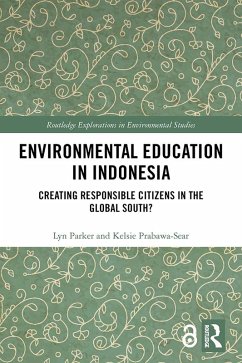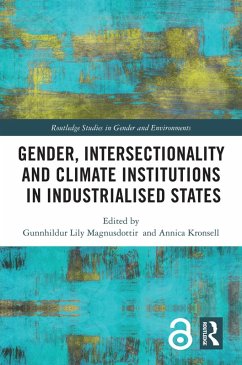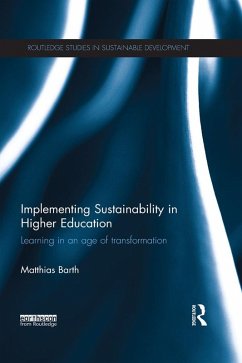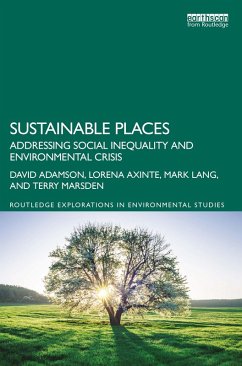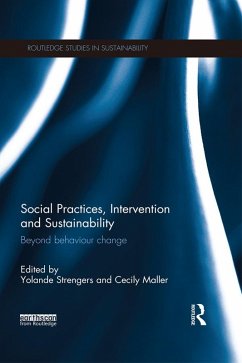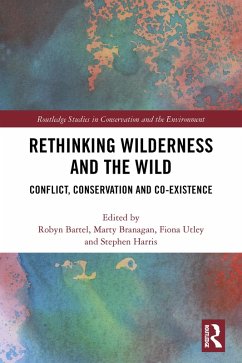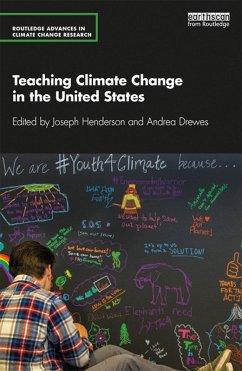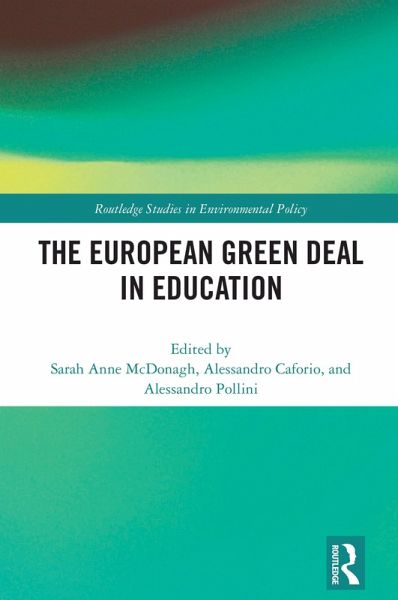
The European Green Deal in Education (eBook, ePUB)
Versandkostenfrei!
Sofort per Download lieferbar
42,95 €
inkl. MwSt.
Weitere Ausgaben:

PAYBACK Punkte
21 °P sammeln!
This book shares real-life case studies taken from GreenSCENT, a three-year EU-funded project that promotes sustainability through the development of digital platforms and tools, green education programme, and climate and environmental literacy certification.To date there has been little work published on the application of the European Green Deal in educational programmes and, while environmental education is very dynamic at present, this area has received scant attention. Seeking to remedy this critical omission, this book represents the first application of the Green Deal topics in the clas...
This book shares real-life case studies taken from GreenSCENT, a three-year EU-funded project that promotes sustainability through the development of digital platforms and tools, green education programme, and climate and environmental literacy certification.
To date there has been little work published on the application of the European Green Deal in educational programmes and, while environmental education is very dynamic at present, this area has received scant attention. Seeking to remedy this critical omission, this book represents the first application of the Green Deal topics in the classroom. It examines environmental education from an academic perspective, looking specifically at the development of digital tools used to promote sustainability and provides recommendations for their practical application. The authors also discuss ways to engage larger and more diverse audiences (children, young people, and adults across socio-economic, cultural, and ethnic backgrounds) on the topic of sustainability through activities such as air quality monitoring, Climathons, and Youth Assemblies.
As the highlighting factors are inclusivity, accessible design, and responsible research and innovation, this volume will be of great interest to students and scholars of European environmental policy and environmental education.
To date there has been little work published on the application of the European Green Deal in educational programmes and, while environmental education is very dynamic at present, this area has received scant attention. Seeking to remedy this critical omission, this book represents the first application of the Green Deal topics in the classroom. It examines environmental education from an academic perspective, looking specifically at the development of digital tools used to promote sustainability and provides recommendations for their practical application. The authors also discuss ways to engage larger and more diverse audiences (children, young people, and adults across socio-economic, cultural, and ethnic backgrounds) on the topic of sustainability through activities such as air quality monitoring, Climathons, and Youth Assemblies.
As the highlighting factors are inclusivity, accessible design, and responsible research and innovation, this volume will be of great interest to students and scholars of European environmental policy and environmental education.
Dieser Download kann aus rechtlichen Gründen nur mit Rechnungsadresse in A, B, BG, CY, CZ, D, DK, EW, E, FIN, F, GR, HR, H, IRL, I, LT, L, LR, M, NL, PL, P, R, S, SLO, SK ausgeliefert werden.





